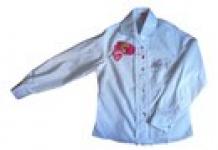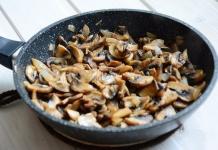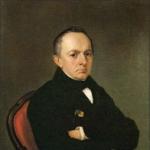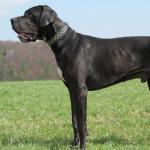Anoshkin Mikhail Petrovich [Electronic resource] / N. A. Kapitonova. - CHODB: Chelyabinsk. - Access mode: http://chodb.uu.ru/site/index/podrost (1.09.2008)
Anoshkin Mikhail Petrovich (11/19/1921-05/07/1982)- writer, journalist He has written several books for children.
Mikhail Petrovich was born in Kyshtym, in a working-class family. He devoted almost all his works to his city, his countrymen. After leaving school, he entered the Kyshtym Pedagogical School. He was lucky with a teacher of Russian language and literature. Margarita Fedorovna Menshikova organized the literary and creative circle "Projector". Mikhail Anoshkin worked in it for three years. During the holidays he worked in the editorial office of the newspaper "For non-ferrous metals". A graduate of the school - M. Anoshkin was distributed in the city of Karabash, but he was invited to work in the newspaper that already knew him "Yes, I did not even dream of such an honor." He became the head of the department of letters of the newspaper "For non-ferrous metals". Thus began his journalistic work.
A year before the war, Mikhail Petrovich was drafted into the army. The war has begun. Anoshkin graduated from the courses of paratroopers, was thrown behind enemy lines, in the Bryansk partisan region. Performed special tasks. Before the Victory, while crossing the Vistula, he was seriously wounded. Documents were sent to award him the title of Hero of the Soviet Union, but were lost. After the hospital, he returned to Kyshtym, to the editorial office of the newspaper. Then he was sent to the Sverdlovsk Party School. He graduated from it and began working as the editor of the newspaper "Lenin's Testament" in the Sosnovsky district of our region.
In the 1950s, Mikhail Petrovich became the executive secretary of the regional youth newspaper Komsomolets. In 1957 he was elected executive secretary of the Chelyabinsk branch of the Union of Writers of the RSFSR. Since 1963, Mikhail Petrovich worked in the regional committee of the CPSU. He did a lot for book publishing and journalism in the region. In 1968, a new newspaper "Vecherniy Chelyabinsk" was created in Chelyabinsk. M. Anoshkin became its first editor. The newspaper was appreciated by readers, it is still published.
Mikhail Petrovich - Honored Worker of Culture, holder of the Order of the Patriotic War and the Red Banner of Labor. In Kyshtym he is remembered and loved. He is an honorary citizen of the city. One of the streets of Kyshtym is named after him.
The first book by Mikhail Petrovich was published in 1948. Then the books began to appear one after another, 25 of them came out: "The Ladeyshchikov family", "Severe youth", "Ural guy", "My friend teacher", "Just life", "Kyshtymtsy", "Kyshtymsky were", collections of stories " Sugomak is not angry", "Man seeks happiness"...
A special place in his work is occupied by books about the war: "Breakthrough", "Special Task", "Difficult Transition", etc. Mikhail Petrovich wrote about the war honestly, sincerely. He put his memories of the war into his books, his thoughts about what happened then, what effect the war had on people, on the history of the country.
Mikhail Petrovich devoted three books to children: "The Adventure of Gerka and Pavlik on Uvildy", "Slavka", "Semka's Find". In the 60-70s of the last century, they were popular with Chelyabinsk schoolchildren.
"Semkina Nakhoda" is a small adventure story about the heroic deed of the guys during the war in the territory occupied by the Nazis. The boys were able to save the regimental banner.
"The Adventure of Gerka and Pavlik on Uvildy" is a story about contemporaries - peers of readers - schoolchildren of the 60s. Readers were attracted not only by the children's adventures, but also by stories about their native places: Kyshtym, Uvildy, Tyutnyar, Cheremshanka... The children are also interested in the legend of Lake Uvildy, told in the book.
Warbler is a story addressed to younger schoolchildren about an extremely lively and inquisitive boy. Because of his curiosity, Slavka always gets into all sorts of stories and adventures: either he tests a home-made gun, or he accidentally left by train ... He has a lot of trouble as an adult, but he is clearly growing into a good, kind person.
Mikhail Petrovich's books for children were distinguished by their great knowledge of child (especially boyish) psychology, simplicity and clarity of presentation, and humor.
The children of the senior classes were close to his stories "Severe youth", "Ural guy", books about the war.
Mikhail Petrovich helped children's writers and poets of Chelyabinsk. He edited the book by Wil Andreev "Sanka". The newspaper "Vecherniy Chelyabinsk", which he directed, often published works for children.
All the literary work of Mikhail Petrovich Anoshkin left a noticeable mark in the South Ural literature.
The founder and editor of the Vecherniy Chelyabinsk newspaper, Mikhail Petrovich Anoshkin... He was born and raised in Kyshtym, graduated from a pedagogical school here, joined the army, fought, returned home disabled with a medal "For Courage" and an order Patriotic War 1 degree.
Guards Sergeant Mikhail Anoshkin returned home from the war in March 1945. "Alive! - the father shed tears and, nodding at the crutches, cautiously asked. — Leg something nothing? Its?" “My own, dad,” Mikhail reassured. "Okay!" Pyotr Pavlovich was delighted. The front-line soldier did not rest for long, already in April he began working in the Kyshtym newspaper "For Non-Ferrous Metals", from where he was drafted into the army in the pre-war fortieth year. And in August, Mikhail was sent by the Kyshtym City Committee of the CPSU for a one-year course at the Sverdlovsk Interregional School of Propaganda (VPSh).
He returned from there with his wife Zoya Nikolaevna, his classmate, and a new appointment - the editor of the newspaper of the Sosnovsky district "Lenin's Testament" in the village of Dolgoderevenskoye. In this edition, in 1948, his writer's baptism also took place - the first story "Sugomak is not angry" was published in the magazine "Change". At meetings of editors, the Sosnovskaya district was invariably noted as one of the most operational, meaningful and well-designed. Here is an entry in the personal file: “For the active participation of the Sosnovskaya regional newspaper in the struggle for a high harvest, its editor MP Anoshkin was awarded the Order of the Red Banner of Labor in 1949.”
In the same year, Comrade Anoshkin, as the most prepared editor, was sent by the regional committee of the CPSU to the disposal of the Central Committee of the CPSU. On a business trip of the Central Committee, he goes to work in Kuibyshevka-Vostochnaya (Belogorsk) of the Amur Region as the editor of the newspaper Stalinskoe Znamya (Belogorskaya Pravda). The region separated from the Khabarovsk Territory lacks personnel. A year later, the Amur book publishing house opened in Blagoveshchensk, and Anoshkin was appointed senior (chief) editor. But this is not enough for him. He directs the literary association at the regional newspaper, edits the literary and artistic, socio-political almanac, which began with the first story of Mikhail Anoshkin "The Most Valuable". In Blagoveshchensk, two more of his stories “The Strongest of All” and “Instructor of the District Committee” were published.
All these moves, job changes, fast training and almost a soldier's life are not his whim or desire for the best. From the first days, as he left his father's house for the army, he did not belong to himself. An order, a task - and on the way, albeit far away. M. Anoshkin joined the CPSU in 1944. And since then, not a single career move of his has been without the will and desire of the party. From an autobiography dated 1954: “At the request of my parents (my father fell ill, he begged my son to return, to be closer - L.V.) to me in December 1951 was allowed(!) leave for the Chelyabinsk region. Since January 1952, I have been working as the executive secretary of the Chelyabinsk regional youth newspaper "Stalinskaya Smena" ("Komsomolets" - L.V.)
About thirty years in party work. And suddenly, at the age of 47, he leaves a prestigious quiet job - head. the sector of press, radio and television in the regional committee of the CPSU - and breaks into an unknown path - the creation of a city evening newspaper from scratch. He accepted this appointment as carte blanche.
The decision of the Central Committee of the party to issue a new portion of evening newspapers, including in Chelyabinsk, was taken on July 12, 1968. And on December 12, the regional party committee approved Anoshkin as editor. Whether Mikhail Petrovich himself asked to be an editor or was offered him - history is silent. Most likely, the first, because only a person who thinks and dreams about it for a long time could take on a new business with such excitement. The newspaper turned out not like the official ones.
- Readers immediately noticed that the imprint did not include “organ”, but “newspaper of the city committee of the CPSU and the city council of working people’s deputies”, which freed it from the need to build itself in the image and likeness of the morning party newspapers with mandatory editorials, reports and the like, - recalls the first executive secretary of "Vecherka" Herman Mazur. - In some ways, it was more like the popular publications of those years - "Nedelya" or "Literary Gazette", in which the topic of the day was maintained, and it was always possible to find something for the soul.
In addition, the newspaper under Anoshkin was truly an evening newspaper, its main circulation arrived at the Soyuzpechat kiosks in the afternoon, and one should have seen these kiosks in the serpentine line behind the latest issue of Vecherka. The newborn newspaper was supposed to be launched on January 1, 1969, but an unthinkable thing - Anoshkin persuaded the city committee to rewrite the resolution. The premiere issue came out on December 31, 1968 and became a New Year's surprise for the people of Chelyabinsk. It was the first lesson in respect for the reader taught to the young team by an experienced editor.
And then there were other lessons. It was Anoshkin who proclaimed that it is possible to win over the reader with information, the promptness of news, their vivid wording, expressive presentation - "evening". The mark "made in the evening" was beyond praise. The newspaper was innovative, with great ambitions and the desire to be the first everywhere and in everything. The team was very friendly, but… It didn't stop us from competing with each other all the time. Up to some jokes. They could easily steal information from under each other's noses. Everyone wanted to excel. It seems that Anoshkin brought the newspaper to the start and gave the command: “Run!!!” All the years Anoshkina did not leave the idea of reorganizing the structure of the editorial board in such a way that at least half of its employees would form a mobile group of chroniclers and observers. Almost all major newspapers are organized this way today.

And his reverent attitude to letters from readers! Is it not in his distant youth, when he, yesterday's schoolboy, was thrown into the department of letters of the Kyshtym district "For non-ferrous metals", the beginning of this respect? Anoshkin made me love letters, because in the inexhaustibility of their flow lies the interest of the newspaper, its strength and life. He himself looked through the editorial mail every day, it filled him with ideas, topics, energy. He loved people, understood their aspirations, valued trust. When going to the bureau of the city committee, he took with him a folder with editorial mail. Letters from readers, sharp reports from journalists each time became the subject of discussion along the entire vertical of city management. The newspaper helped the people of Chelyabinsk to influence all "municipal" affairs, to solve the problems of the development of the regional center.
At the suggestion of Anoshkin, the days of open writing, reader summer meetings - meetings directly with Chelyabinsk residents in open classrooms, in factory teams have become traditional. He was not afraid to speak at them with a report on the work of the newspaper, the effectiveness of its publications. With what attention he spoke to people. How the employees lit up from his words. How many new topics appeared at these meetings, how many plans were made. In the first year, the editors received 15,000 letters; during the thirteen years of his editorship, the annual reader's mail increased to 30,000. The Chelyabinsk "Vecherka" under Anoshkin became one of the best city newspapers of the Russian Federation, the winner of numerous competitions, union and republican competitions, the winner of many journalistic awards.
The phenomenon of Anoshkin as an editor can be summed up in one word "interest". He had an extraordinary interest in life, in people, in a profession, in an event, in everyday details. He taught that interest - that spring of life - should be the main feature of a journalist. Be interested, be curious - and you will be the first.
Everyone who went through Anoshkin's school, and today are active socially adapted people with their own point of view and the application of forces. He not only personally selected and hired everyone, but correctly placed them in their places, charged them with creative performance for many years and determined their destiny in the future.
He did not tolerate laziness, indifference to work, negligence, cunning tricks. Sometimes he calculated hack-work belatedly and pulled out the laid-out material directly from the page, turning the formed page.
“Mikhail Anoshkin had a golden line,” recalls Chelyabinsk journalist Yury Yemelyanov. - If he felt that a person can do something and devote himself entirely to the cause, he did not interfere. Even if the journalist was wrong, he took the blow. At one time, I got powerful criticism, in the city executive committee and the city committee there were many offended by it. He swallowed and never said anything. The only thing he asked was: “Did you check everything?” "Yes". And many thought that he had a difficult character.
He was sincere in front of a blank sheet of paper, and demanded the same from others. I read about the difficult nature of Anoshkina in his personal file. In the conclusions-recommendations for the approval of the bureau of the regional committee of the CPSU in a new position, the communist MP Anoshkin is every time accused of “... painful perception of critical remarks. Facts of incorrect response to critical remarks were available from comrade. Anoshkin and earlier. How painfully and incorrectly he reacted to the criticism of his party comrades, I also know from the occasion in Vecherka: at a meeting of the party bureau of the editorial board, his nose bled, sickened by “principled” criticism, which aroused great sympathy from non-party people.
It was restless around him. Mikhail Petrovich Anoshkin lived, worked and felt with his heart. Such people do not live long. Because they are always in conflict - with themselves, the circumstances imposed by the environment. The party-Soviet-nomenklatura form of existence of this person, which did not allow choice, did not correspond to his inner content.
- Anoshkin is from the native Kyshtym working people, maybe that's why he was a peasant both at work and in life. And the authorities were not very convenient for the authorities, he spoke and bent his own, - recalled the journalist and local historian Alexander Moiseev. - He was not loved either in the regional committee or in the city committee, where he was a member of the bureau, since he led the city committee newspaper. Because at the first opportunity he used an outlet: "Vecherka", they say, is not an organ, but a newspaper of the city committee, so it is not a mouthpiece, but has the right to its own voice. The townspeople didn't like it, of course. And for an essay in the Ural magazine in 1979, where he painted them in a difficult situation in a very recognizable and not at its best, the city committee slapped our editor with a reprimand and "put it in sight." Under our "boss" we could take liberties on the pages of the newspaper - he always held his chest for his own on the party carpet.
We all come from childhood. And his rebelliousness is also from that Kyshtym "sloping" street, as he called it, where the strong father's house still stands and the Sugomak and Egoza mountains adjoin. Writer Mikhail Anoshkin sang his native land, in shaggy pines, not only in prose, but also - that's a discovery! - in verse. Our stern editor was embarrassed by this, and only a few of them saw the light without him. / And very often in the days of parting, / Tired of fierce battles, / From all poetry and from science,/From wise men and fools, / We mentally go to the mountains - / For Sugomak and Egoza. / Or to the lake expanses - / To catch the Ural thunderstorm.
Thunderstorms seem to have fascinated him since childhood. Here is from another poem:
/Of course, it’s not sweet for me alone, / I can’t tell the sky from the earth, / But I don’t want to run away from here without looking back / I must admit, I don’t want to either. / Because I want the elements / To look into shaggy eyes / And listen to dashing whistles, / That a generous thunderstorm will scatter. /… And in the end, with dashing / And my cheerful inevitability / I want to stay under a thunderstorm / And get wet right to the bones.
Thunderstorm, storm, elements - his favorite poetic images. Being under a thunderstorm is an eternal editorial path.
What do I remember about my grandfather? - told me his grandson Alexander Anoshkin, commercial director of one of the Chelyabinsk firms. “I was only seven when he passed away. When I think about him, a song about the Kame River constantly pops up in my head, it is so dear. My grandfather always sang it to me when we went to bed. My parents divorced when I was two years old. But I spent all weekends with my grandfather, I always stayed overnight. Baba Zoya was leaving the bedroom, I occupied her bed. We walked and talked a lot. At home, they constantly cut something with him, glued some crafts. He carved sabers, machine guns, revolvers out of wood for me. They ran after each other, shot, raged. After all, I dreamed of being a military man, my favorite TV show was "Serving the Soviet Union." We watched it with my grandfather, he explained something else to me. And about the war, no matter how much I asked, I never heard from him. I only remember that before going to bed, every time he rubbed his legs with ointment for a long time. They were swollen with many dark pits. Now I know that these are shrapnel wounds. Another memory: we went with him to the Crimea to rest and stopped in Moscow to see his front-line friend.
So Alexander Lyapustin, M. Anoshkin's deputy in Vecherka and right hand, an expert on military topics, writes in August 1983 a year after the death of Mikhail Petrovich: “Neither from the writer Anoshkin, nor from the journalist Anoshkin, we learned how he fought . In his books and newspaper and magazine publications, we read about the affairs of others - he did not go into memoirs about his own person. His silk identity card (Sergeant Anoshkin sewed it into his clothes when he was sent to the rear) was lost in the literary museum. I showed a paper certificate of participation in a special sabotage group only once - before the sixtieth birthday, everyone was afraid that this exciting document of the forties would crumble on the folds. Today, not a single social security service will find documents on front-line disability - after all, he returned from the war to work! And I just didn't care for them."
And how annoying it was for me to find out only recently, when preparing one publication, that the theme of HIS war was the main one in many works of MP Anoshkin. And especially in the "most capital", as he defined them in his autobiography from a personal file - the trilogy "Breakthrough", "Special Assignment" and "Difficult Transition". Moreover, a year before the death of Mikhail Petrovich in 1981, his autobiographical story “Frontiers” was published in Chelyabinsk, in fact, a memoir, in which he told in simple stories not only about his childhood, but also about himself in the war.
I don't know why we, his chicks, didn't read these books during his lifetime. Probably, they simply did not know about them, he did not advertise his works, did not arrange, as is customary now, public presentations. The fact that Mikhail Petrovich published something new, for example, it is ridiculous to say, I found out from the paid trade union dues, since for many years I was the treasurer of the local committee. And, probably, Anoshkin as an editor was so great for us that his writing seemed to be something secondary, like a hobby. Like fishing, which he adored since he was a kid.
Meanwhile, the titles of his "capital" trilogy are the main stages of his military biography. Breakthrough from the border Bialystok, surrounded on the first day of the war, where he served. Special mission the commander of the department of the 12th separate guards battalion of miners M. Anoshkin - subversive sabotage work in the special forces detachment under the command of the Hero Soviet Union Brigade Commander Duki. Their four lucky ones were parachuted behind enemy lines - the partisans urgently needed qualified demolition workers. Difficult transition- ensuring a crossing across the Vistula: “On the other side, the infantry battalion recaptured the bridgehead, but the Germans are trying to throw it into the river. We are ordered to ensure the delivery of ammunition to the battalion and the crossing of new units. The foreman brought ferries - three, six and nine tons. My department got two three-ton ones.” The company worked day and night. From fatigue, the oars fell from his hands. The calluses burst... The Germans did not sleep during the day and literally shot the ferries - people died, ammunition drowned. This is his story from Frontiers...
After that publication in the Chelyabinsk Rabochy, they sent me a scan of the award sheet: “Fulfilling the task of the command to cross our troops to the left bank of the Vistula River, comrade. Anoshkin on the first day of the crossing was the first to reach the left bank and ensured the landing. On the same day Com. Anoshkin made 10 trips, while having three damage to the ferry, he quickly eliminated the damage, and the cargo was delivered on time. On July 31, 1944, the ferry, which was led by Anoshkin, was destroyed by enemy shrapnel artillery fire, half of the crew was disabled, Anoshkin himself was seriously wounded in the left knee joint, despite this, comrade. Anoshkin delivered the cargo and left the ferry after the order of the commander. Tov. Anoshkin showed heroism, courage and courage in the fight against the German invaders. Worthy of the government award of the title of Hero of the Soviet Union. Commander of the 21st Guards Engineer Battalion of the Guards, Major Malashenko. August 14, 1944".
The submission was signed on August 19 by the commander of the brigade Rapoport, however, the commander of the 61st Rifle Corps, Major General Grigorievsky, did not support their petitions and, by order of September 17, 1944, awarded MP Anoshkin with the Order of the Patriotic War of the 1st degree.
Last year, in his native Kyshtym, one of the schools was named after him, and there is also a street of the writer Anoshkin. In the year of the 40th anniversary of the newspaper "Vecherniy Chelyabinsk", through the efforts of its veterans, a street named after MP Anoshkin appeared in Chelyabinsk. Mikhail Petrovich Anoshkin is not forgotten. In Kyshtym, every writer's birthday is celebrated with exhibitions and meetings in the city library named after B.E. Shveikin. For more than 20 years, the book theater of this library has been giving performances based on the story of M. P. Anoshkin “ New flat" in educational institutions city, in the club, at teacher conferences. Bibliographer Lyudmila Alexandrovna Skorokhodova told such a touching story. A single copy of M. Anoshkin's book "About the city of Kyshtym", published by YuUKI in 1968, was so dilapidated that it was no longer issued to readers. And then in 2010, schoolboy Roman Shveikin collected the book, typed it on a computer and printed it at the Kyshtymsky Rabochiy printing house.
The former “evening attendants” have a tradition: every year in early May, bring flowers to the grave of their legendary first editor at the Assumption Cemetery, which is located in a prominent place on the central alley.
He left too early, in 1961, right after the press day, on the eve of Victory Day. Like a true soldier and editor, not having been retired for a day, without finishing the books he had planned. But the main thing I managed to do was to leave a good eternal memory of myself.
Lyudmila VISHNYA, journalist, Honored Worker of Culture of the Russian Federation
Anoshkin Mikhail Petrovich(11/19/1921, Kyshtym - 05/07/1982, Chelyabinsk), publicist, social writer. activist, meritorious cultural worker of the RSFSR (1978), member of the USSR Union of Writers (1958), member of the USSR Union of Journalists (1959), participant of the Grand. Fatherland wars, respect citizen of Kyshtym (1981). Graduated from Kyshtym ped. uch. Work. activity began lit. an employee of the Kyshtym mountains. gas. "For non-ferrous metals". In 1940 he was drafted into the ranks of the Kr. Army. From the first days of the war. In the summer of 1943, paratrooper A. was abandoned behind enemy lines, in the Bryansk region, to carry out a special assignment from the command. When forcing the river. Vistula was seriously wounded. After demobilization and graduation from the Sverdlovsk Higher Party. school worked as an editor of the Sosnovskaya district newspaper. "Precepts of Lenin", reg. youth gas. "Komsomolets" (see "Team"). Being the head sector of the press, television and radio broadcasting of the regional committee of the CPSU (1963-68), was engaged in the development of printing in the South. Urals, the education of journalistic personnel. Founder and editor for 13 years mountains gas. "Evening Chelyabinsk". A. managed to create a newspaper, not similar at that time to any other in its style and design, awareness and efficiency. In the 1970s the editors received at least 30,000 readers' letters annually, and repeatedly became the winner of the All-Union. competitions. Many correspondents came out of its ranks. region and center. newspapers. A. auth. 25 books and plays about the people of the Urals, comrades in arms. The leading theme of his work is Vel. Fatherland war. Dedicated to her the story "Severe Youth", "Ural Boy", a trilogy, which included the stories "Breakthrough", "Special Task" and "Difficult Transition". In 1975, the novel "Kyshtyms" was published in YuUKI. Prod. A. were also published in Moscow, Sverdlovsk and Blagoveshchensk. For a number of years A. headed the region. org-tion of the joint venture of Russia and the Union of Journalists of the USSR, was elected a member. board of the Union of Journalists of the USSR, member. bureau of the regional committee of the Komsomol, member. Pers. City Committee of the CPSU, dep. Pers. mountains People's Council dep. Order awarded. Fatherland wars of the 1st step. (1944), Trud. Cr. Banner (1949), medals "For Courage" (1944), "For Labor Valor" (1967), etc.
ANOSHKINMikhail Petrovich (11/19/1921, Kyshtym, Chelyabinsk region - 05/07/1982, Chelyabinsk), prose writer, journalist, member. SP USSR (1958), member. SJ USSR (1959). Got a ped. education in the Kyshtym school, worked in the editorial office. Kyshtym mountains. newspapers. During Vel. Fatherland of the war he graduated from paratrooper courses and in the summer of 1943 was abandoned behind enemy lines, in the Bryansk region, where he performed a special task of command. When forcing the river. Vistula in 1944 was seriously wounded and demobilized. Upon returning home, he graduated from the Higher Party School in Sverdlovsk. Worked ed. newspapers, including reg. youth "Komsomolets" (now " Team ”), head. print department Regional Committee of the CPSU, headed the region. org-tion Union of Writers of Russia and Union of Journalists of Russia , was Ch. ed. gas. “ Evening Chelyabinsk ". In 1948 in the "Change" was published. 1st story A. “Sugomak is not angry.” Later dep. the novels “Strongest of all”, “Instructor of the city committee”, “The Ladeyshchikov family” were published as books. Front experience A. embodied in the military. topic, which for a long time was Ch. in the writer's work (“Severe youth”, “Ural guy”, the trilogy “Breakthrough”, “Special task”, “Difficult transition”). Citizen-patriotic A.'s position was reflected in numerous. journalism, dramaturgy, prod. for kids. He is aut. 23 books published in Moscow, Chel., Blagoveshchensk. AT last years life ed. newspapers. Order was awarded. Fatherland wars of the 1st step. and Labor. Cr. Banner.
Z. E. Prokopieva
S o h .: Strongest of all: A Tale. Blagoveshchensk, 1951; Ural Guy: A Tale. Ch., 1960; Breakthrough: A tale. Ch., 1964; Special task: Story. M., 1970; Kyshtyms: A novel. Ch., 1987. Lit.: Gorbatov B. The book of a young author // Lit. gas. 1952. Sept. 9; Ryazanova M.A. Creativity of M. Anoshkin // Ryazanova M.A. Notes on the work of writers of the Chelyabinsk region. Ch., 1959; Shmak o v A. A word about a comrade in writing // ChR. 1971. Nov. 20; Mikhailovskaya N. Kyshtytsy // ChR. 1979. Dec 23; Writers of the Chelyabinsk region: Biobibliogr. ref. / Comp. V. V. Ilyin. Ch., 1992.




















